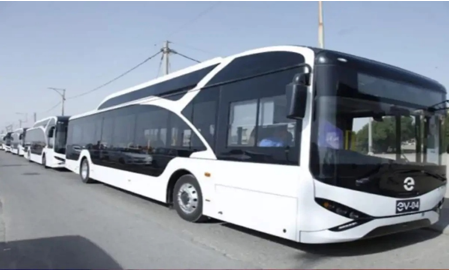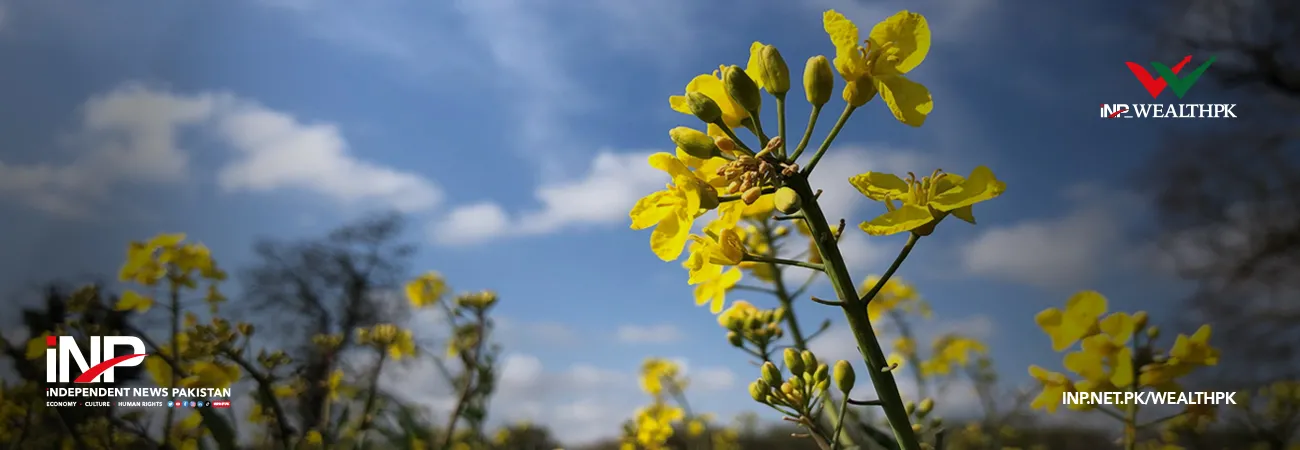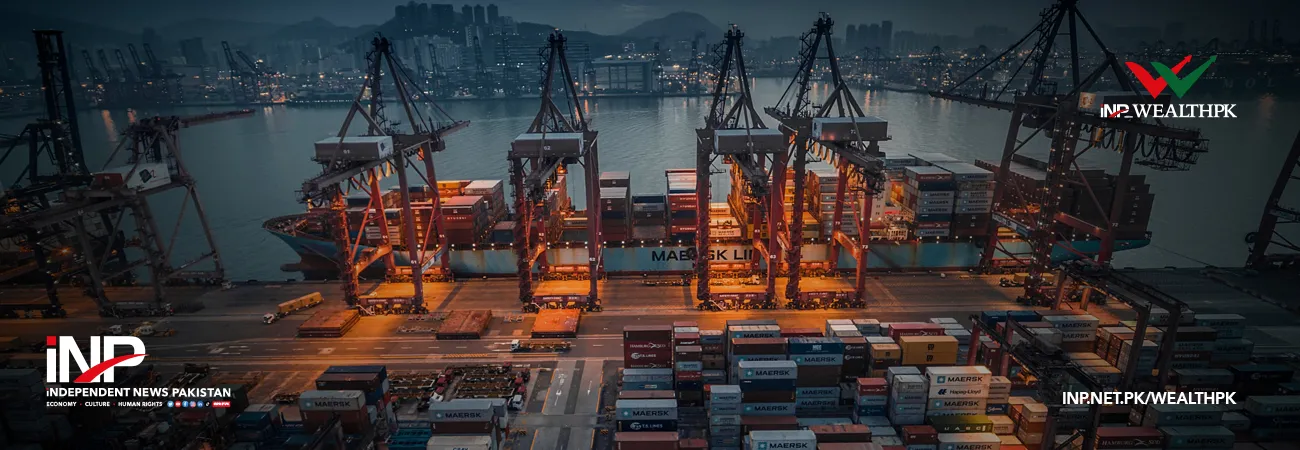آئی این پی ویلتھ پی کے
Shujauddin Qureshi
Frustrated by the rising air pollution, inadequate public transport, and unsustainable energy consumption, Karachi – the largest metropolis and commercial capital of Pakistan – has embarked upon an ambitious journey toward sustainability, investing in electric buses and innovative energy infrastructure projects under public-private partnerships, reports WealthPK.

These initiatives aim not only to modernize infrastructure, but also to transform urban life for millions of residents. The city is grappling with dangerous levels of air pollution, often ranking among the most polluted cities in the world. On some days, air quality in the city reaches hazardous levels, with thick smog and fine particulate matter posing serious health risks to millions of residents.
Experts point to vehicular emissions as the leading cause of the city’s worsening air quality. With over four million vehicles on the roads — many of them old, poorly maintained, and running on low-grade fuel — the city's transport sector is a major contributor to pollution. Karachi, in recent months, is witnessing a major overhaul of its public transport system through the introduction of Red Bus People’s Bus service, which also includes electric buses.
But these vehicles are insufficient to cater to the city’s population of 20-22 million. Currently, the fleet consists of decade-old buses and minibuses, as well as two-seater and multi-seater rickshaws. Even these public transport vehicles are providing inadequate transport facilities. The lone operational Bus Rapid Transit (BRT) corridor, the federally built Green Line, gives a flavour of both promise and limitations.
Eighty buses ply its 20.9‑kilometre median lane from Surjani to Numaish, moving about 55,000 riders daily — far below capacity yet still a lifeline for commuters in Central and West districts starved of reliable service. The Sindh government has approved a phased plan to deploy up to 8,000 electric buses over four years, with the first phase already operational and 50 e-buses on the roads.
The plan includes the procurement of 1,500 buses in the first year, with subsequent expansions and development of charging infrastructure and depots. “The Sindh government is now setting up charging stations across Sindh,” said Energy Minister Syed Nasir Hussain Shah while speaking at the Sindh Energy Diversity Conference in Karachi on July 11. He said the parking areas and petroleum stations are also encouraged to install charging stations.
The provincial government is actively promoting the adoption of electric vehicles (EVs) beyond public transport by encouraging the private sector to introduce electric two-wheelers, three-wheelers, and passenger cars. As the federal government has recently announced an EV policy, a number of companies are aggressively entering the EV market. Several private companies have launched electric bikes in the country. Prominent among them are Jolta Electric, Metro E‑Vehicles, Vlektra, Pakzon, PakZone, etc. These bikes, with a DC charging kit, have the facility to recharge their batteries at home, in the absence of charging stations in the city.
Similarly, a few companies are testing their muscles and launching EV cars. BYD Pakistan, Inverex and Kia EV5 are some prominent brands, which have recently rolled out their electric cars. Chinese giant BYD announced last year that it would assemble electric SUVs and sedans in Karachi through a joint venture with Mega Motors, eyeing localization by 2026 and a nationwide charger mesh along motorways. Inverex Solar Energy, best known for home inverters, has rolled out its newly launched Xio electric hatchback, imported from China, in three range variants (140 km, 220 km and 320 km) and priced from Rs3.5 million to Rs5 million.
“Initially, we are importing completely built cars, with three models in the market,” M. Zakir Ali, CEO of Inverex, told WealthPK. He said once clear-cut policy and taxation structures are introduced in Pakistan, the company is planning to establish an assembly plant of EV cars in Karachi. “We are also installing six charging stations in Karachi to ensure uninterrupted operation of the vehicles,” he said, adding that the company has established a service centre in the city for after-sales service of the cars. “We have given franchises in Hyderabad and are exploring partners in Lahore for franchise,” said Zakir Ali.
For a regular commuter waiting at a hot and crowded bus stop, things are simple. If an electric bus comes every five minutes, costs less than a minibus, and doesn’t release thick smoke that fills M.A. Jinnah Road, people will happily choose it. Karachi’s fight for clean air and better transport is not over yet. But there are signs of hope. When an electric bus quietly moves past a noisy traffic jam full of smoke-belching vehicles, it gives a glimpse of what a cleaner and calmer future for the city could look like.
Credit: INP-WealthPk






